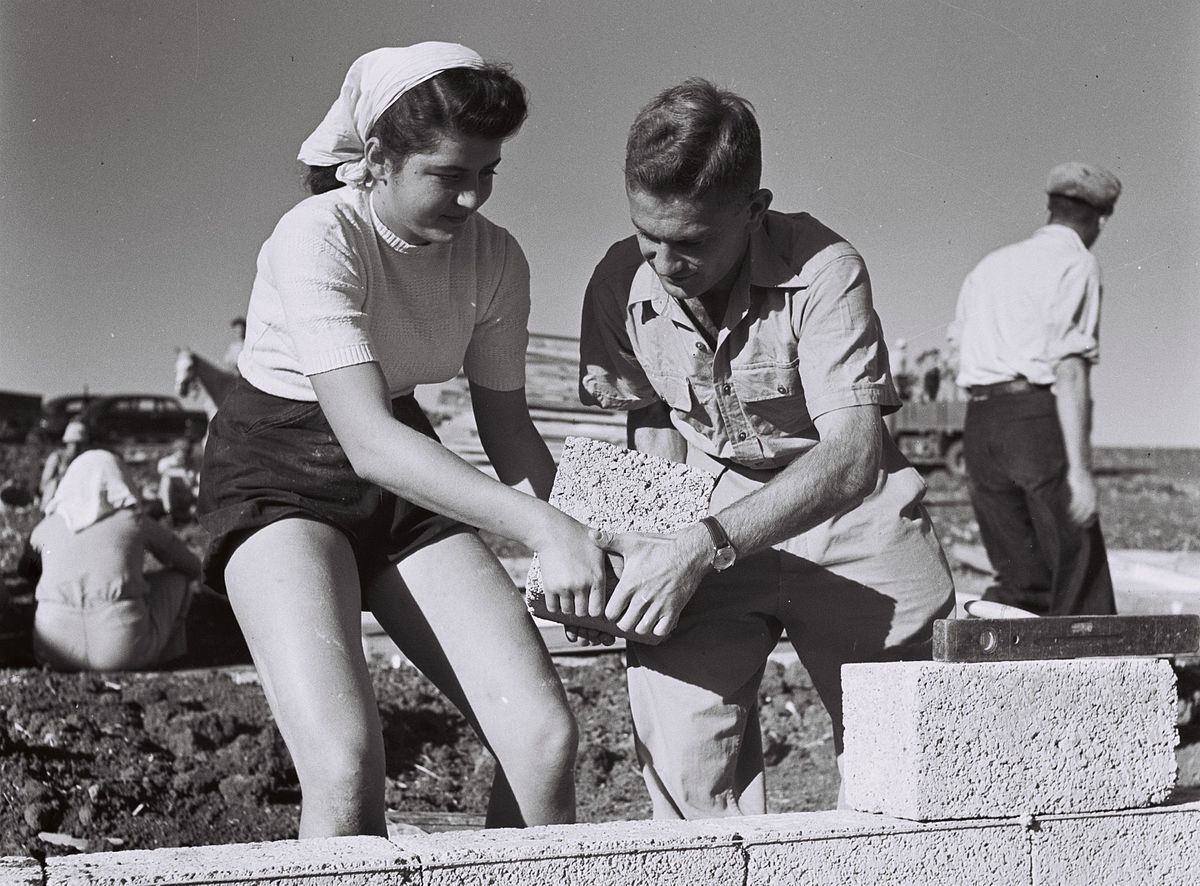While eating lunch at an Israeli Kibbutz last winter, I learned firsthand about what used to be a self-contained, socialist community. I was struck by the local guide’s positive view of socialism, believing it to produce strong communal life and economic prosperity. The guide’s praise only echoes A.I. Rabin and Benjamin Beit-Hallahmi from Michigan State University who wrote that “[t]he most successful attempt at building a Utopian commune has been the Israeli Kibbutz.” The optimism expressed by these observations is not without cause – the kibbutz movement was foundational to the establishment and success of the Israeli state.
“Kibbutz” refers to collective communities in Israel that were historically characterized by collective ownership of property, an emphasis on the dignity of manual labor, a system of direct democracy and communal child care. In other words, no member exercised personal property rights but instead received toiletries, food and other necessities according to a distribution system. All members earned the same allowance for their work – regardless of whether their occupation consisted of milking cows, preparing meals or managing a large production facility. Children did not live in their family homes but instead grew up in communal, child-rearing facilities. Marx would have smiled in his grave if he knew that communal goods and services were provided “from each according to his or her ability, to each according to his or her needs.” Although most of the kibbutzim privatized in recent years, the appeal of its socialist ideology lives on; in fact, Senator Bernie Sanders himself lived and volunteered on a kibbutz in 1963 and is now a self-described democratic socialist.
Before Israel’s independence, the kibbutz provided structure for the defense of Jewish settlers and was the backbone of the rural economy. After Israel’s independence, the kibbutz supplied around twenty-percent of the country’s top military officers. Five prime ministers of Israel – David Ben-Gurion, Levi Eshkol, Golda Meir, Shimon Peres and Ehud Barak – were all at some point members of a kibbutz. In terms of members’ satisfaction, life expectancy, economic performance and demographic growth, the kibbutz society was “relative to the rest of society in Israel – very successful” until the nineties. These observations have led academics to ask whether the Israeli kibbutz sets itself apart from the myriad of failed socialist societies as a proven paragon of success.
Democratic socialists today like Sanders and Alexandria Ocasio-Cortez believe that socialism is the key to poverty alleviation, and a rising number of young Americans are attracted to socialism as a moral economic system necessary to meet basic human needs. A YouGov survey revealed that 43% of respondents under age thirty had a favorable view of socialism. When asked what socialism is, millennials use phrases such as “nice”, “being together” or “the government pays for our needs.” Perhaps the success of the Israeli kibbutz is finally a victory for socialism. Whereas communal ideology propelled widespread killing and poverty in the Soviet Union, China, Vietnam, North Korea and Cambodia, the socialist values of the kibbutz society seemed to engender security, harmony and even prosperity.
But eventually the kibbutz would join the list of socialist models that were ultimately not ideologically sustainable. Debt and economic crisis were in part responsible for the abandonment of strict communalism. Mid-1980s Israel experienced a dire economic crisis with a 400 percent inflation rate and high levels of unemployment. Although the government and banks later on agreed to bailouts, the economic situation still disheartened many members of the kibbutz. In particular, the elderly worried if the kibbutz failed to provide for them again in the future, their lack of personal pensions would be problematic. The uncertainty and feelings of vulnerability sewn by the financial crisis incentivized individuals to build personal saving accounts rather than deposit all revenue into communal funds.
Economic crisis was not the only culprit for diminishing communal values; quite the opposite phenomenon – a rise in industrialization and opportunity for higher standard of living – were additional blows to the sustainability of the kibbutz. Russell Raymond et al. write in their book The Renewal of the Kibbutz: From Reform to Transformation that “[i]n the first years of the kibbutzim, kibbutz members had little to share with each other but their poverty. The kibbutzniks’ self-denying, ascetic values were well suited to the economic condition of the kibbutzim.” While communal ownership of housing, means of production and cafeterias was feasible – even attractive – when members were themselves impoverished, the pull to community weakened with an increase in the standard of living and availability of resources. The challenge of increased standards of living to communal life is illustrated by the fact that more children moved to live with their parents as standard houses grew in size. Kibbutzim traditionally decried “the close knit family a creation of capitalism,” but eventually the communities had to bow to the demands of children and parents. The new living situation led to increased privatization and individualization, as communal cafeterias were less used and home-cooked meals became an accepted norm.
The popularity of the kibbutz in Israel is peculiar to me, given that Judaism emphasizes the importance of the nuclear family. Parents have a sacred obligation to care for and raise their children in Jewish tradition; children are commanded to respect their parents. Kibbutzim challenged the nuclear household, separating children from their parents. But families eventually united under one roof. Kibbutzim traditionally proportioned goods to members according to their needs regardless of their skill, but individuals eventually requested market-based wages. Members of kibbutzim were willing to equally share poverty, but when the individuals experienced prosperity from industrializing, inequality ensued. Ultimately, the story of the kibbutz highlights the crucial problem of socialism: its core tenants are at odds not only with Judeo-Christian principles but also with innate human tendencies to raise a family, compete in the workplace and make self-interested decisions.
Featured Image: Government Press Office (Israel) [CC BY-SA 3.0]

